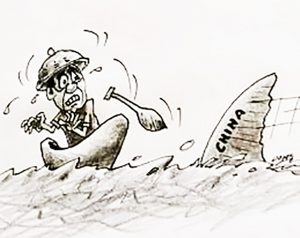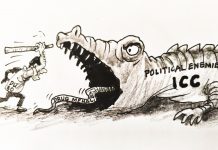The resurgence of drug proliferation in the Philippines, alleged to be happening at present, is a troubling development that casts a shadow over the gains made during the previous regime. Under the iron-fisted rule of the former president, the country saw a marked reduction in drug-related activities, albeit through controversial and often brutal methods. The decline in visible drug problems was evident, and many Filipinos, especially those in communities long plagued by narcotics, welcomed the seeming eradication of this menace from their daily lives.
However, as reports of drug activities rise once more, the effectiveness and sustainability of the previous administration’s approach are being called into question. The war on drugs was characterized by a no-nonsense, often ruthless approach that struck fear into the hearts of drug syndicates. Extrajudicial killings, widespread arrests, and the dismantling of drug networks were the hallmarks of this campaign. While it undeniably led to a decrease in drug visibility and a temporary disruption of drug networks, it also drew significant criticism both locally and internationally for human rights abuses. Despite this, many argue that the tough stance taken was necessary to confront a deeply entrenched problem that had long been ignored or inadequately addressed by past administrations.
In contrast, the current administration’s approach to the drug problem appears to be more lenient, or at the very least, less aggressive. This has led to concerns that drug syndicates are once again gaining ground, emboldened by the perceived softening of the government’s stance. The alleged return of drug proliferation suggests that the previous administration’s methods, while effective in the short term, may not have addressed the root causes of the drug problem. Without sustained pressure and comprehensive reforms, the drug trade can easily rebound, undoing the hard-won gains of the past.
The challenge for the current administration, and indeed for any future leaders of the Philippines, is to find a balanced approach to the drug problem—one that is firm and effective, yet respects human rights and the rule of law. It is clear that the issue requires more than just an iron hand; it demands a multiple strategy that includes prevention, education, rehabilitation, and the strengthening of institutions to resist corruption and enforce laws fairly. The fear is that without such a comprehensive approach, the cycle of drug proliferation and violent crackdowns will continue, with devastating consequences for society.
Who among the future presidents will have the courage and wisdom to confront the drug menace in a way that is both effective and just? The iron hand may bring quick results, but only a leader with the vision to implement lasting reforms will truly free the Philippines from the grip of the drug trade. The country waits with bated breath, hoping for leadership that can address this complex issue with strength and integrity.




